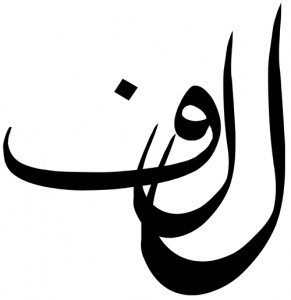Pakistan’s interesting times shape literature.
By Owen Bennett Jones
A couple of years ago, a few months after the Syrian government decided that the best way to deal with protesters was to shoot them, there was a magnificently quirky act of rebellion in Damascus. A group of opposition activists climbed one of the city’s hills and released thousands of ping-pong balls. Each one had the word ‘freedom’ painted on it.
It was, of course, an utterly futile gesture. But perhaps worth it for the sheer pleasure of watching policemen getting tangled up with their Kalashnikovs as they tried to retrieve the elusive balls which kept bouncing just out of reach.
With news editors always on the lookout for a new way of telling a familiar story, the incident made it onto a few websites. On one of them, a secular, leftist opposition sympathizer in Beirut, blogged: “I wish our protests here were as creative as the ones in Syria.”
In fact Lebanon too provides evidence of a link between political conflict and artistic inspiration. The yawning culture gaps between Hezbollah’s highly-trained and heavily-armed puritans, anxious Christians, angry Palestinians, worldly Druze and increasingly terrified Alawites are just part of the country’s fertile territory. Lebanon’s creative response takes the form of febrile decadence. Beirut’s fabulously designed, hedonistic nightclubs are an uncanny echo of the pre-war German cabarets that inspired Christopher Isherwood’s Goodbye to Berlin. In both places the drive to grab pleasures for as long as they remain available seems to have filled people with a slightly desperate energy.
As Orson Welles had it in The Third Man: “You know what the fellow said—in Italy, for 30 years under the Borgias, they had warfare, terror, murder and bloodshed, but they produced Michelangelo, Leonardo da Vinci, and the Renaissance. In Switzerland, they had brotherly love, they had 500 years of democracy and peace—and what did that produce? The cuckoo clock.”
It was a profoundly cynical remark from a profoundly cynical character who, in the movie, had a business selling fake drugs to Vienna’s hospitals. And if that sounds familiar maybe it’s because the U.N. has put out statements saying that Pakistan’s tribal areas, as well as producing jihadists, drug smugglers, and people-traffickers are also a manufacturing hub for fake antibiotics. The distrust of the polio vaccines reflects not only anti-Westernism but also some projection of very dodgy local practices. There are a lot of cynics about in Pakistan and it is hard to imagine a more suitable location for a Graham Greene plot than present day Peshawar.
And to a far greater extent than is the case in either Syria or Lebanon, Pakistan’s ideological rifts and chronic political crises have found literary expression. And it raises a question. When Welles made his remark there was more than a hint that all the human suffering in renaissance Italy had been a price worth paying for such supreme works of art—which prompts the awkward thought that some of Pakistan’s authors and their readers might feel the same way.
Pakistan’s writers might counter, with some justification, that far from welcoming mayhem all around them they are simply providing a focus and perhaps some solace for a small group of compatriots who wonder whether there is a way of avoiding a choice between the dysfunctional society provided by their parents and the austere one promised by the Islamists.
But that argument does not cope with the fact that most readers of contemporary Pakistani novels have never stepped foot in the country. And when it comes to the foreign readers of Pakistani authors there is another layer of complexity. Might some be enjoying an Orientalist frisson as they reflect on the difference between their own stable states and the exciting and vibrant traumatized societies out East? Certainly some of the locals in Lebanon’s nightclubs wonder why quite so many Euro-trashy tourists fly in for exotic weekends sampling life on the edge.
But that is just one side of the story. More pressing, perhaps, in any violent society is the situation of those most exposed to the societal and ideological conflicts that provide such rich source material: the poor, the weak, the vulnerable, the confused.
British government statistics suggest that most Pakistanis would far rather have the rule of law and cuckoo clocks as opposed to conflict and some good writers in their midst. Each year between 40,000 and 50,000 Pakistanis make the move to the banality of life in Britain. Countless others would also rather not be stuck in a Chinese proverb but can’t obtain the paperwork to live in less interesting times and a more boring place.
Faced with civil war, venal leaders, suicide bombers, an increasingly angry mob and the possibility of watching the first ever collapse of a nuclear state close up, some writers focus on grand themes and great rifts in society. Most of their fellow countrymen, albeit with a heavy heart, just want to go somewhere safer.
____________________________________________________________________________
Jones worked with the BBC and is the author of Pakistan: Eye of the Storm. He teaches at Princeton University. From Newsweek Pakistan’s March 1 & 8, 2013, issue.

